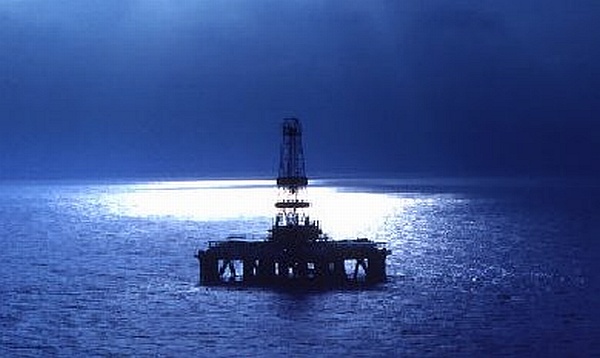Coatzacoalcos, Mexico - On March 18, 1938, México’s president, Lázaro Cárdenas, expropriated all oil reserves, facilities, and foreign oil companies in the country. Today, Petroleos Mexicanos (Pemex) is Latin America’s largest corporation and still has a monopoly over the Mexican petroleum industry. The state-owned corporation is the biggest source of revenue for the Mexican Treasury.
Last Sunday, speaking at an official ceremony to mark the 74th anniversary of the oil nationalization, President Felipe Calderón said that México will continue to exercise full sovereignty over the ownership, control, and exploitation of this strategic resource, as Pemex has successfully stemmed production declines in aging fields.
Calderón told Pemex workers in Coatzacoalcos, México, that his National Action Party has boosted investment in the Mexican oil industry to about $23.7 billion this year, up from the $5.3 billion in 2000. And due to the record investments, its modernization, and the increase in its installed exploitation capacity, the state owned oil corporation is "more efficient, more profitable, more competitive, and more viable.”
 |
Pemex pumps 2.5 million barrels per day and is the world’s third largest oil producer. Only a few years ago, the country's oil output totaled almost 3.4 million barrels per day, but production has since fallen due to a sharp decline at the offshore Cantarell oilfield, once the country’s most productive.
According to Pemex Chief Executive Officer Juan Jose Suarez Coppel, "Crude output will rise for the first time since 2004 and may even return to historical levels of 3 million barrels per day."
"I am proud that Pemex has taken the route to once again become a world-class company," Calderón said. "Oil will continue to be exclusively for the people of Mexico."
Pemex has made advances in deep-water exploration, the President said, adding that Pemex Exploration and Production raised its investment in exploration $2.96 billion in the last twelve years.
He also reported that during his government, nearly 40 offshore rigs have been installed to increase the extraction of hydrocarbons and natural gas. Another five rigs have been hired for deep water exploration in the Gulf of Mexico. He concluded by saying that this has halted the decline in hydrocarbon production registered over a number of years.
According to Calderón, "Now, the biggest threat to Pemex’s long-term financial health is labor costs, especially pensions."
The Institutional Revolutionary Party (PRI), which ruled Mexico without interruption from 1929 until Fox’s victory at the polls in 2000, is the favorite right now to regain the presidency in this year’s election. The PRI candidate, Enrique Peña Nieto, said "it is essential for energy reform in México to allow Pemex to partner with the private sector."
The former governor of México State argued that this proposal could take place "without giving up ownership of the hydrocarbons public or the stewardship and leadership of the State in the matter."
Recalling the expropriation of México’s oil made former President Lazaro Cardenas, Nieto stated that it is necessary "to set aside ideological ties to ensure that the oil industry continues to be a force for national development."


